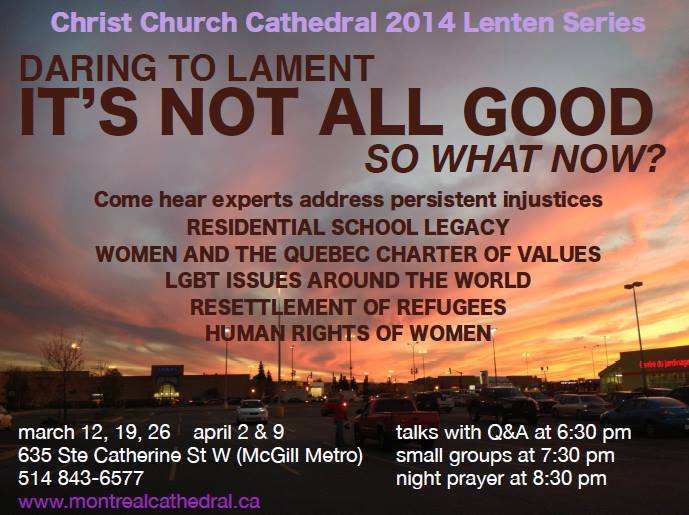A little while ago – before this current unpleasantness – I visited China for a couple of weeks. In my wanderings, I encountered a number of Buddhist temples filled with worshippers on their knees, faces to the ground in front of ugly giant Buddha statues. Don’t let anyone try to convince you that idol worship is no more in the 21st century.
As I’m sure you know, Buddhism teaches that we keep being reborn until we learn our lesson and reach the state of nirvana, a state of nothingness. The lesson we have to learn is that living is suffering, to free ourselves from suffering we must free ourselves from emotion and desire and thus become – nothing. Superstitious balderdash and, consequently, most appealing to contemporary Anglicans.
From here:
“The more time you spend thinking about yourself, the more suffering you will experience,” says the Dalai Lama. “We create most of our suffering, so it should be logical that we have the ability to create more joy.”
As we wrap up our Lenten self-assessments—especially in the time of COVID-19—we need to be intentional that such inner appraisal is reframed from self-centredness to attention toward the circumstances of others. Many sincere Christians have foundered on the rocky shores of unproductive guilt over their own private demons. The Dalai Lama keeps repeating that unhealthy attention to our weaknesses will not enhance our inner values, nor will it make us better people. In fact, the reverse may be true. “Giving up” things that we know are not good for us may actually expand our negative cravings and make things worse.
[….]
Behind the words of this Buddhist seer I begin to hear the haunting words of Jesus, and my Lenten spiritual journey has been doubly-blessed. Perhaps, as Holy Week approaches, you might consider his words and be blessed, as well.



